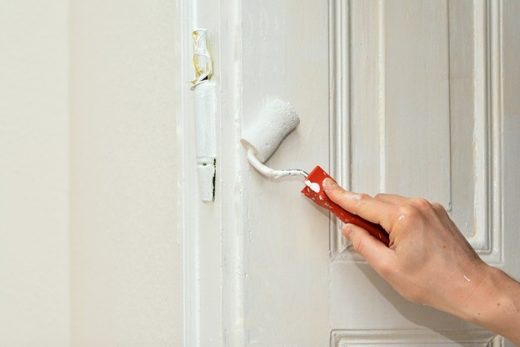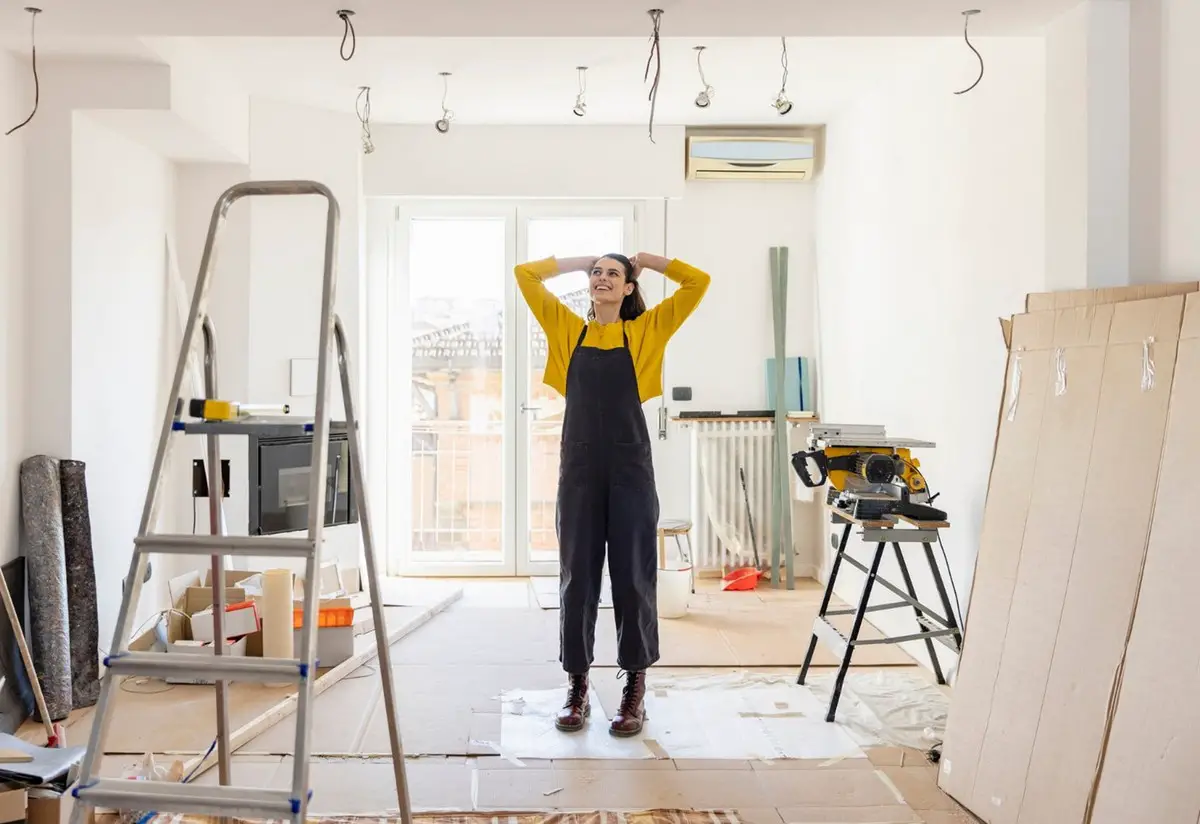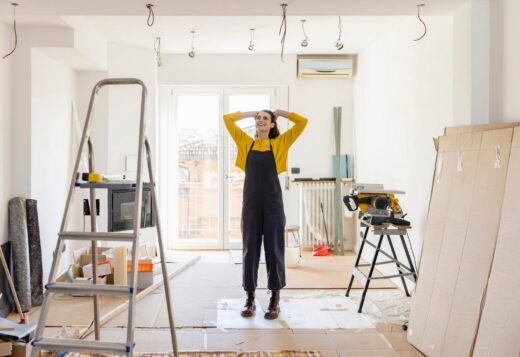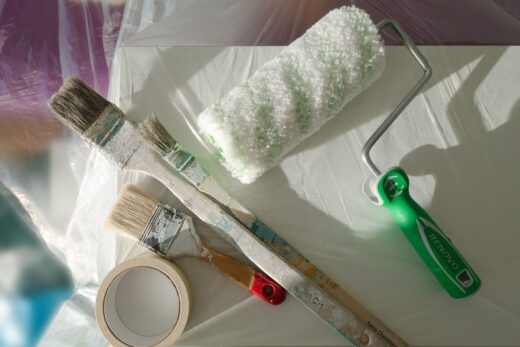Home renovation tips to keep in mind guide, Old house refurb design, Online property restoration advice
Home Renovation Design Advice
15 July 2022
Home renovation can be an incredibly complex feat for the most experienced professionals. According to Service Star Management Company, DIY home renovation is often even more demanding with obstacles and learning curves that could make the best of us feel like we are losing our minds! Fortunately, there are ways to help minimize and relieve the difficulties that come along with professional and DIY home renovation alike.
Here are some of the most common home renovation challenges that you might not have even considered and top tips for staying sane as you deal with your home renovation project.
The One Thing Nobody Tells You About Home Renovation: How to Stay Sane!
Home Renovation Challenges to Expect
When you’re renovating a home, you can expect to face physical pain and muscle fatigue, mental stress as well as problems caused by inadequate diet and nutrition.
Pain and Muscle Stress
When you’re working with your hands all day, bending, lifting, contorting your body into unusual positions, and remaining in one position for long periods of time – as are all common experiences during home renovations – you can expect to feel some possible muscle strain and/or physical pain.
You might experience:
- Headaches or migraines
- Neck tension
- Muscle sprains
- Backaches
- Sore joints
- Foot pain
- Bumps and bruises
Mental & Emotional Stress
Home renovation can be filled with triggers for mental and emotional stress. A constant stream of expenses that make it feel as though your home has become a money pit, snap judgments, indecision and reworking of mistakes are merely a few of the most common stressors that come from home renovation projects.
You have the pressure to stay within your budget, the trouble of finding good professionals to work with, the need to acquire the right materials to complete the job at hand, and the delays caused by unforeseen circumstances or lack of proper planning. You may face mold, pests, lead, asbestos, flooding, electrical problems, foundation damage and excessively loud noise. You will likely have to deal with a multitude of contractors, building inspectors, permits, paperwork, scheduling conflicts and deadlines.
All of this is enough to make any sane person feel like they are losing their mind!
Dietary Problems
When you are busy renovating your home, your diet generally pays a price – a big one. You probably skimp on nutrient-dense meals, opting for quick, unhealthy junk food, fast food, highly processed sugar soft drinks, and snacks full of empty calories. Or you might even skip meals altogether while you work. Inadequate nutrition not only impedes your ability to do the work before you, but it can also impair your general health, leading to weight gain, bloating, energy crashes and contributing to other potential long-term health issues.
Tips for Staying Sane
You can’t eliminate all the stressors you are likely to confront while renovating your home. Fortunately, there are several things you can do to help mitigate the impact of those stressors on your mind and body.
What follows are some ways to help you stay sane and reduce the negative effects that home renovation stress can have on you.
Yoga/Stretching
Home renovation is most certainly physical activity — sometimes it’s even strenuous physical activity — but it is most certainly not the same thing as proper exercise. Sure, you are working your muscles and exerting energy that pumps your heart faster, causes you to breathe heavier, and makes you sweat. But what makes exercise exercise is its deliberate, focused attention on specific areas of your body. When installing sheetrock, hammering a nail, using equipment like circular saws and screw guns, you’re probably not paying much attention to how you contort and strain your body to get the job done. You only realize this afterward when you are having symptoms like joint pain, muscle strain, neck tension, headaches, physical fatigue and the like.
Yoga and intentional stretching of opposing muscle groups is a perfect low-impact form of exercise. Just a few minutes of yoga or stretching before or after performing work on the home (or, ideally, both) can go a long way toward preventing the physical and mental stress associated with home renovation. If you don’t know any yoga postures to do, you can always watch a quick YouTube video for a Yoga crash course. Alternatively, you can simply stretch your muscles by focusing on one muscle group at a time. Slow, gentle stretching just past the point of comfort or resistance – and no further – is ideal. You obviously do not want to further strain your muscles in the effort to relax them, so remember to keep your stretches moderate.
Stretching your muscles before you work helps make your body less rigid, more limber, and muscles more supple. Your body becomes less susceptible to the effects of unexpected impact forces that are common during home renovation projects.
You only need to hold each stretch for 30 seconds to one minute for it to be effective, so it’s easy to work stretching into your already busy schedule. Stretching also improves your respiration and infuses your muscles with the oxygen they need to work at optimal levels. Increased blood oxygen makes your mind sharper and gives you more energy to stay on the go. You are also much less likely to experience accidents and make mistakes with the physical energy, mental focus and alertness that comes with stretching and improved oxygen flow.
Natural Medicine
Natural remedies relieve many of the physical and mental consequences of stress or even prevent them in the first place. Herbal teas, for example, can help you relax while also promoting therapeutic benefits from the various medicinal herbs they contain. Try energy teas in the morning instead of coffee and calming teas at night instead of alcohol.
You can use various supplements for stress and pain relief, especially in the hands, feet, and joints. Try and find the best product as an effective natural pain reliever. When you’re working on your feet or with your hands all day, it’s going to hurt sometimes. Focus on ways to relieve those aches and pains, as well as the mental stress you are no doubt experiencing.
Adding a healthy supplement into your bedtime routine will help you sleep better, too. Deep, restful sleep is essential to restore the clarity and strength you need to face the challenges of home renovation work the next day.
Quick Meditation
“Meditation is like a gym in which you develop the powerful mental muscles of calm and insight.”– Ajahn Brahm
Meditation is essentially the process of centering and refocusing your mind. Centering the mind is simply clearing it of all thought. Pretty simple, right? By centering the mind, you can release anxiety’s hold on you and relieve the mental stress associated with home renovations.
Clearing the mind also makes way for fresh, new thoughts to enter your mind that give you greater clarity about where you are now and where you need to go next. You can even intentionally plant positive, affirming thoughts in your mind to replace negative, unsupportive ones. Mediation helps you center yourself inside, so you’re less susceptible to stress coming from the outside.
There is no single, “right” way to meditate or any step-by-step rulebook that you must follow. Everyone meditates in their own way, which is appropriate because only you know what works best for you. Here are some common tips and techniques many people find helpful for meditating:
- Find a comfortable position – Aches and pains easily distract you from meditating and even cause you to give up before you’ve gotten the benefits. Therefore, it’s essential to start out in a comfortable position, such as seated on the floor, cross-legged on a pillow. Sitting upright in a chair also works.
- Breathe slowly and deeply – Take 10 to 15 slow, deep, conscious breaths in and out – counting if it helps you – and pay specific attention to how you are breathing throughout. Feel each breath. That is your primary focus.
- Hone in on a single point in space – Keeping your eyes from darting around the room aimlessly can easily distract you from your meditation, which is why many people train their eyes on an object (like a candle flame or a flower) to keep them from losing concentration and filling their mind with more stressful thoughts. Meditation allows you a few moments to just let it all go.
- Intone – Making a repetitive sound like “Om” while you meditate can help you focus your mind and quiet the unwanted, intrusive thoughts that come with stressful situations.
- Repeat positive affirmations – Find a short phrase that helps you achieve your meditation goal, such as “I work smarter, not harder,” and repeat it five to 10 times. Your affirmation should be something meaningful and believable to you.
- Observe yourself – Notice how your body and mind feel while you meditate. Can’t stop negative thoughts from interrupting your meditation? Label them with a single, neutral term, like, “Thinking,” and then refocus on your deep, conscious breathing. Each time a negative thought enters, label it, “Thinking,” and then refocus your attention onto your breathing. In a meditative state, your thoughts have no positive or negative value. Having aches and pains while you meditate? Notice where they are centralized and breathe into them.
Often, two to five minutes of meditation at a time is enough to center and refocus your mind. But there is no specific amount of time you need to meditate for it to benefit you. Trust your own sense of when you’ve gotten what you need for the moment if you’re on a tight schedule. The point of a good meditation is simply allowing yourself the space to be free from the constant stream of thoughts that are otherwise flowing through your mind. That’s it!
Prepare Your Diet
As Hippocrates said, “Let food be thy medicine, let medicine be thy food.”
While renovating your home, you will likely be working harder, longer hours than you normally do in ways you normally do not. For these reasons, your body needs even more vitamins, minerals, electrolytes, fiber, and complex carbs to fuel you for the job ahead. Prepare your meals before you start renovations and put the food in the fridge or freezer for when you need it. That way, you avoid eating unhealthy food just because it’s convenient. And don’t forget to drink plenty of water so you stay hydrated all day long.
Home renovation design advice – Final Thoughts
The one thing nobody tells you about home renovation basics is that it’s not always all it’s cracked up to be. That is, home renovation is definitely not as easy as it looks on TV shows – and it most certainly takes longer than a 30-minute episode! But by taking actions to properly care for your physical and mental well-being while you renovate your home, you can avoid or minimize many of the common challenges it presents.
Comments on this guide to Home renovation design advice article are welcome.
Home Renovation
Home Renovation Posts
Home Renovation Tips to Keep in Mind

Get Inspiration From Tiny House Designs
Home renovation and roof replacement estimate tips
Energy-Efficient Home Renovation Project
How to Fund Your Next Home Renovation
Building Articles
Residential Architecture
Design: Yerce Architecture & ZAAS, Istanbul
photo : Yerce Art Photography – Emin Emrah Yerce
Studio Loft Izmir
Comments / photos for the Home renovation design advice guide page welcome.







